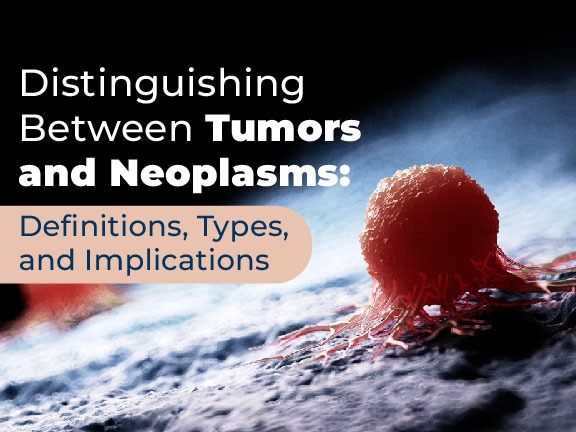New advances in prostate cancer treatments are made possible by clinical trials that ensure new therapies and drugs are both safe and effective prior to approval by the FDA. Once approved, these therapies are used to treat patients as the standard of care. For patients in the early stages of prostate cancer, the survival rate is nearly 100 percent. However, new advanced prostate cancer drugs are crucial to develop because once it has metastasized to distant parts of the body, the advanced prostate cancer survival rate is only 30 percent.
Some of the latest treatments for advanced prostate cancer in clinical trials include:
- New methods of a radical prostatectomy
- Immunotherapy
- Hormone Therapy
- Targeted Therapies
Prostatectomy: Advanced Techniques

When prostate cancer is in its early stages where the cancer is only in the prostate gland, surgery is a common treatment option for patients. This type of surgery is not available to those with advanced metastatic prostate cancer. A prostatectomy is a procedure to remove the entire prostate, nearby tissue, and seminal vesicles. In some cases, the lymph nodes closest to the prostate will be removed. There are several methods of prostatectomy, which include:
- Open radical prostatectomy: The prostate is removed when a small incision is made in the lower abdomen or between the scrotum and anus (perineum). In some cases, the lymph nodes are also removed during this procedure. It can be difficult to keep the nerves around the prostate intact or remove the lymph nodes when the incision is made in the perineum.
- Radical laparoscopic prostatectomy: A laparoscope, which is a tube with a light and camera, is inserted in one of the multiple incisions made along the wall of the abdomen. The surgical instruments are used in the other incisions to remove the prostate. It is more likely that the patient will have their nerves undamaged, or lymph nodes removed using this method.
- Robot-assisted laparoscopic prostatectomy: Similar to the radical laparoscopic prostatectomy, several incisions are made through the abdomen and a camera is inserted within one of the incisions, giving the surgeon a 3-dimensional view of the prostate and nearby tissues. Robotic arms are placed in the other incisions and are controlled by the surgeon through a monitor in the surgery room.
Symptoms that patients may experience after one of these procedures include:
- Impotence
- In some cases, an Inguinal hernia occurs within a few years of the surgery and causes a bulging of the small intestine or fat through weak muscles into the groin
- Shortening of the penis by nearly an inch
- Urine or stool leaking from the bladder and rectum
Immunotherapy for Prostate Cancer
Immunotherapy signals the immune system of the patient to attack cancer cells in the body. Substances from the patient or artificially made in a laboratory to strengthen the body’s defenses against cancer. Advanced prostate cancer treatment using immunotherapy typically includes Sipuleucel-T once the cancer has metastasized to other parts of the body. Novel treatment options for advanced prostate cancer and prostate cancer in early stages are being developed in clinical trials, which give access to the latest therapies for cancer patients.
Hormone Therapy for Prostate Cancer
Prostate cancer can grow from male sex hormones, so preventing their production can help stop the growth of the cancer cells. Hormones are made by glands and circulate in the bloodstream. Hormone therapy removes hormones or prevents them from helping cancer cells grow. Androgen deprivation therapy (ADT) is the process of reducing the number of male hormones or prevent them from working by using surgery, drugs, or specific hormones.
Some common forms of hormone therapy in prostate cancer patients include:
- Abiraterone
- Acetate
- Orchiectomy
- Estrogens
- Luteinizing hormone-releasing hormone agonists
- Antiandrogens
- Adrenal gland inhibitors
Targeted Radiation Therapy and PSMA
Targeted therapies are drugs used for late-stage prostate cancer treatment that are able to locate, identify, and attack cancer cells based on their specific characteristics. These drugs avoid normal, healthy cells often causing less side-effects from treatment in patients. PARP inhibitors are used to block enzymes that promote cell growth in the body. Olaparib is a PARP inhibitor used in prostate cancer that targets the enzymes and prevents cancer cells from performing vital cell functions, leading to their death. Targeted therapies are used to treat advanced stage prostate cancer because it is more difficult to treat, or they are used in cancer with mutations in their genes such as BRCA1, BRCA2, MET, HER2, and more.
The prostate-specific membrane antigen (PSMA) is a brand-new method of detecting prostate cancer in patients. The PSMA is injected into the bloodstream and binds to the cancer cells. Doctors are not only able to locate these cells to know exactly where in the body the cancer has spread, but targeted therapies are used to attack these cancer cells that have the PSMA attached to them.
NCI-Supported Research Programs
The National Cancer Institute (NCI) is part of the National Institutes of Health and offers comprehensive information on cancer treatment, diagnosis, research, clinical trials, and more. The NCI also helps support and fund research in cancer through clinical trials, grants, training programs, and other initiatives.
For example, Massive Bio was awarded a contract by the NCI to develop an oncology based artificial intelligence (AI) enabled clinical trial recruitment tool to help prostate cancer and other cancer patients connect to treatment options in clinical trials. This Small Business Innovation Research (SBIR) contract by the National Cancer Institute (NCI) helped to develop and characterize the Deep Learning Clinical Trial Matching System (DLCTMS). The development of the DLCTMS has the potential to enhance clinical trial enrollment and retention across NCI clinical trial networks and beyond.
Personalized Clinical Trials for Prostate Cancer
Prostate cancer clinical trials test new and promising cancer treatments to diagnose, prevent, or treat a disease. Oncology trials are used to find treatments and improve the quality of life in patients. Today’s standard treatment options were once used before their approval in clinical trials. Therefore, patients are getting early access to clinical trial therapies, sometimes years before they are widely available to the public.
Massive Bio’s DLCTMS can help connect you with the clinical trial that is most suitable for your case. Using your medical records and our AI platform, more than 170 clinical algorithms find the clinical trials right for you, which include your location, cancer type, age, subtype, biomarkers, and more.
Sources:
https://www.cancer.gov/types/prostate/research
https://www.cancer.gov/types/prostate/patient/prostate-treatment-pdq












